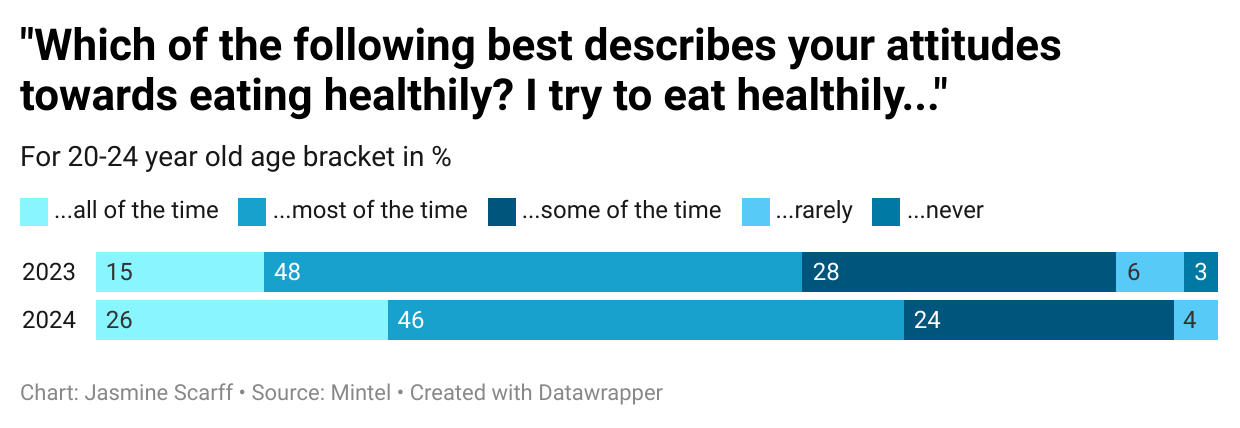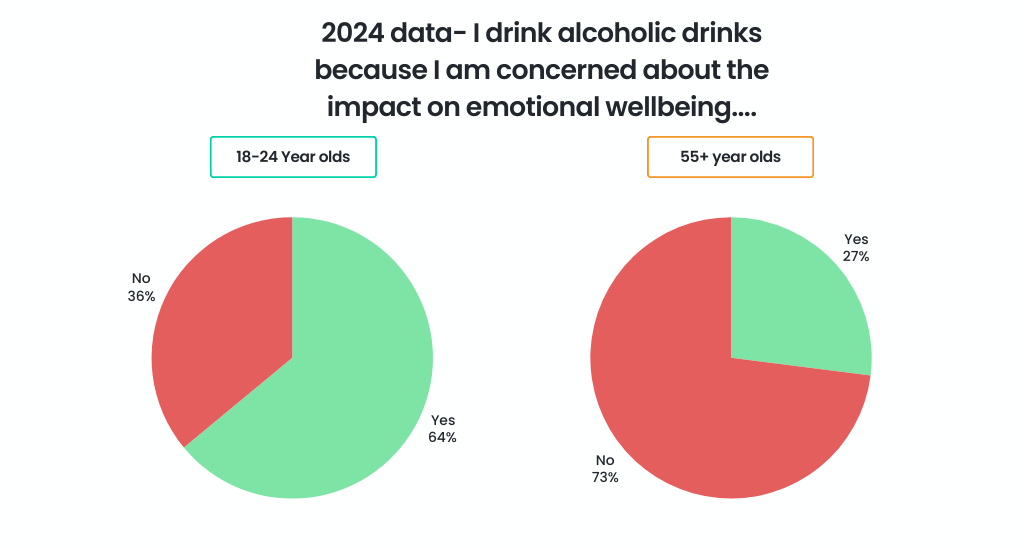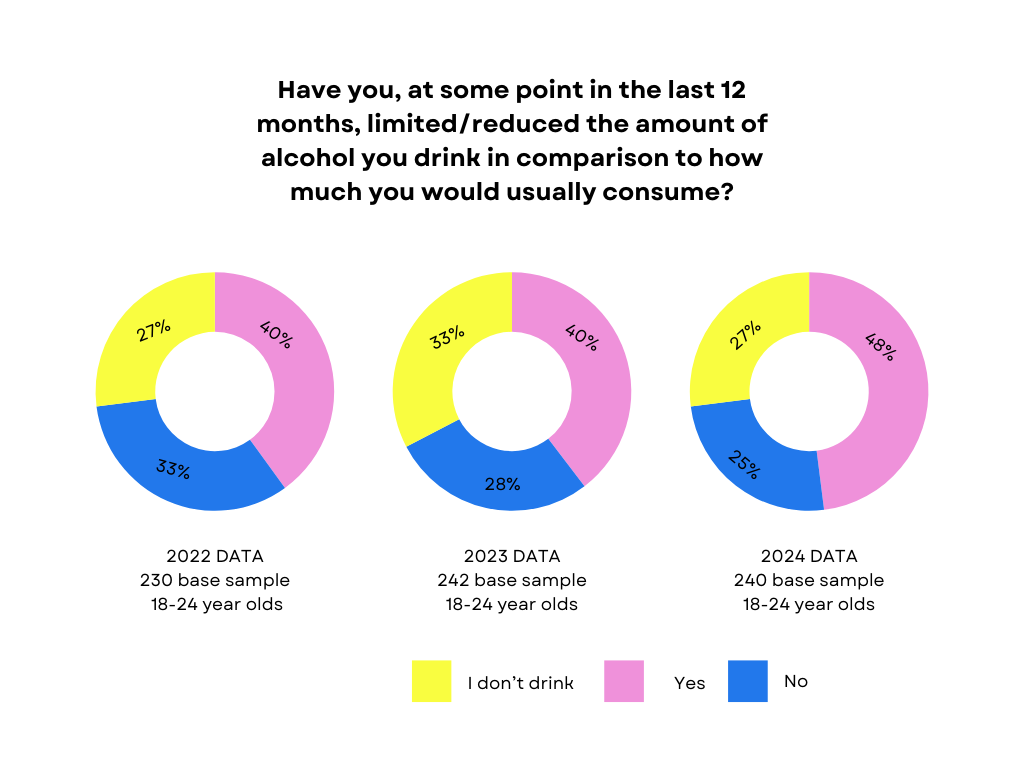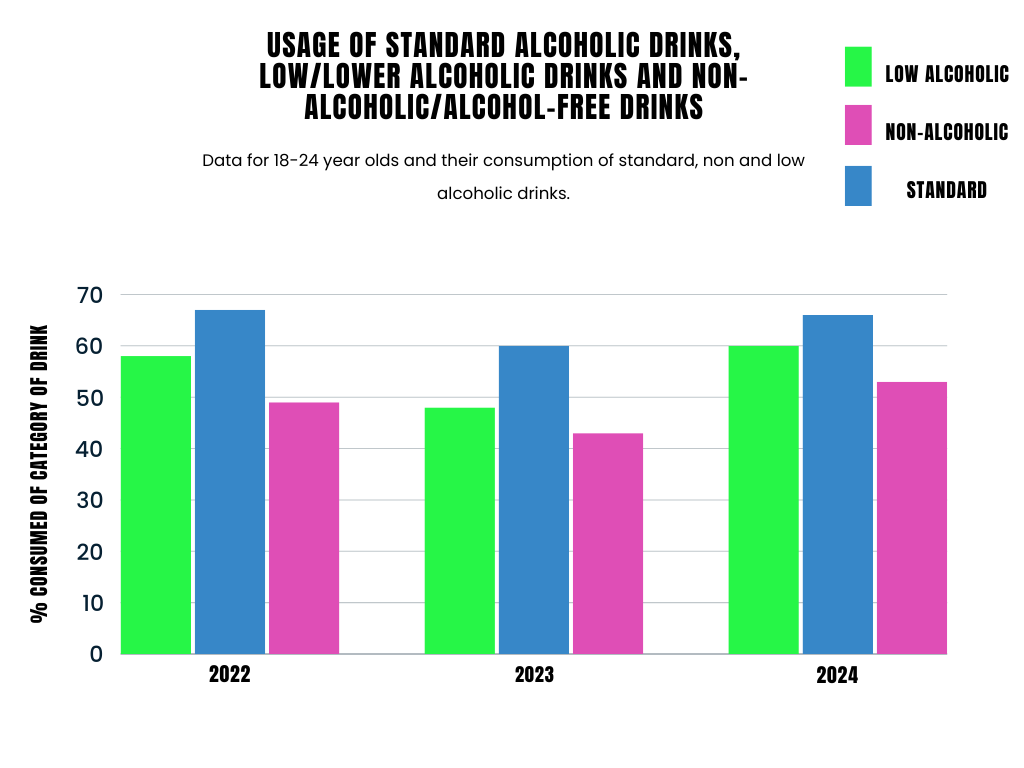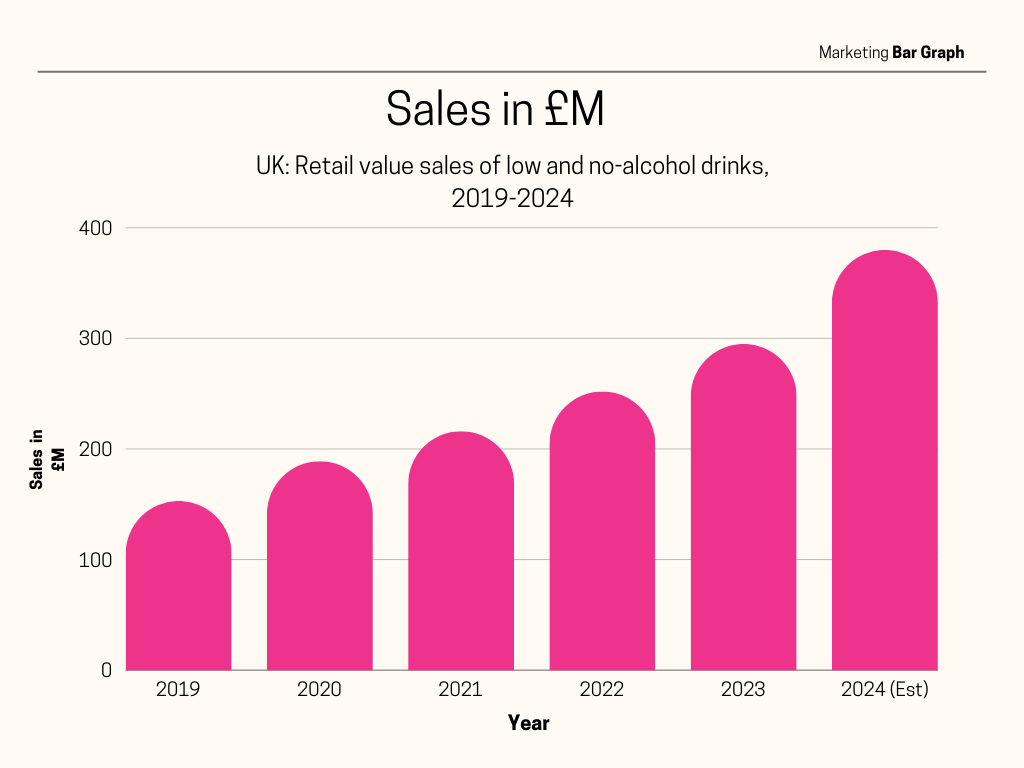The Rise of the Sober-Curious: How Gen Z are Redefining Drinking Culture
Bar stools are unclaimed, club floors are sparse as younger generations opt for alcohol free alternatives.
Sobriety is no longer a month-long detox for the new year, its changing into a lifestyle, in which younger generations are rethinking their relationship with alcohol and embracing a life of change. But what exactly is the sober-curious lifestyle? The UK’s leading alcohol charity-Drinkaware explains the sober-curious lifestyle as ‘a lot less of simply ‘going along’ with the dominant drinking culture that exists across social situations, often subconsciously or because we feel that it is socially expected of us.’ Drinkaware acknowledges the societal push within drinking culture, and instead focuses on mindful drinking.
However, research by Mintel, shows that younger generations are reducing their alcohol consumption and opting for alcohol free alternatives. But what is formulating this change? Why are individuals moving away from drinking culture? And trading late night shots for a good night’s sleep.
How health awareness is changing social norms:
Generation Z are redefining social behaviours with an increased focus on health over the next big night out, although alcohol still remains a big part of society, sobriety is becoming a cool and aspirational lifestyle. In 2024, 26% of 20–24-year-olds when asked "Which of the following best describes your attitudes towards eating healthily?” responded with “all the time”. A remarkable 11 percentage point increase from 2023, highlighting a growing commitment to wellness among young people. It's no secret that alcohol isn't the healthiest beverage option, and doesn't align with the new wellness-focused lifestyle embraced by Gen Z. According to the latest Mintel report, the number of 20–24-year-olds who never try and eat healthy has dropped to an impressive 0%, down from 3% in 2023, another clear sign that the younger generations are prioritising wellness and a healthier lifestyle.
In recent years, studies have recognised the detrimental impact of alcohol on an individual’s mental health, and so have Gen Z. The social movement towards sobriety does not ignore the concerns regarding the impact of alcohol on emotional wellbeing, when asked why individuals consume non/low alcoholic drinks, 55% of individuals related this shift to concerns about alcohol on emotional wellbeing. However, the effects of alcohol seem more apparent to Gen Z, with 64% of 18–24-year-olds concerned about the emotional impact of drinking, compared to just 27% of those aged 55 and older.
I spoke to 21 year old student, Izzy Mayled, who has recently began her sobriety journey post university. ‘I’ve noticed a real shift in our generation, not just within myself, but also for people around me’ she explained. ‘A lot of my friends are experimenting with sobriety, it’s something we are doing together’. Izzy observes that members of Gen Z appear to be placing higher importance on their physical and mental wellbeing, prioritising health over traditional drinking and partying habits.
Izzy shows that mental health has opened our minds and closed a few bottles, with Gen Z finding new ways to unwind, and not reaching for that extra glass of wine.
Sober socialising and socials:
Gen Z have taken a step back from alcohol, but a step towards addressing their sobriety journey on social platforms. Platforms like Instagram and TikTok have helped the normalisation of the sober curious movement, through the community hashtags, such as #Sobriety, which has over 2.6m posts on Instagram. The social platforms are amplifying the sober-curious dialogue, creating a community for people to openly discuss their sobriety journey. Gen Z are not afraid to challenge past norms and move away from the vulnerability caused by drinking. The sober curious movement is officially cool, with social media creating communities that make it easier than ever for young people to embrace a lifestyle with less alcohol.
Gen Z is leading the sober-curious movement, leaving older generations behind:
Generation Z accounts for one third of the population, representing the largest proportion of non-drinkers, leading the way in the sober-curious movement. But has the reduction in alcohol impacted older generations? Or is it just Generation Z? According to data from Mintel, in 2024, 48% of 18-24-year-olds reported cutting back on alcohol in the past year, compared to just 27% of those aged 55-64. This youth driven trend has captivated Gen Z with an increase of individuals reducing the amount of alcohol they consume, when comparing Mintel data from 2023 and 2024, data shows that there has been an 8% increase in the number of 18–24-year-olds reducing the amount of alcohol they consume in the past year. Whilst the figure of 18–24-year-olds who don’t drink remains consistently at an average of 29%.
The steady decline in those who haven’t cut back on alcohol reflects a growing trend among Gen Z towards sobriety and mindful drinking. The shift highlights how younger generations are becoming increasingly sober curious, and eager to explore alternatives to traditional alcohol consumption.
The rise of the low and no alcohol lifestyle:
Moving away from traditional alcoholic drinks, has opened up a growing market for low and non-alcoholic beverages. Since 2022, the consumption of alcohol-free options has risen, with Mintel revealing that 37% of people now enjoy alcohol-free alternatives, an increase from 30% in 2022. Gen Z has fully embraced these alternatives, generously fuelling significant growth for businesses in the low and non-alcoholic beverage market.
The graph above reveals that while the use of low and non-alcoholic drinks among 18–24-year-olds dipped in 2023, it rebounded significantly in 2024, reaching its highest level in three years. The increase in low and non-alcoholic drinks in 2024, shows that the low/no alcohol lifestyle is reflecting genuine change for Gen Z.
Revenue for businesses offering alcohol-free alternatives is bubbling thanks to Gen Z with a 148% increase in sales from 2019-2024. The younger generations embracing mindful drinking habits, gives business the perfect opportunity to thrive and grow. Data from Mintel shows the increase of the retail value sales in the UK from 2019-2024.
The significant increase in sales from 2019, shows that drinking culture is being redefined with individuals embracing low and non-alcoholic alternatives, creating lucrative opportunities for brands to innovate and expand their offerings.
With Generation Z not afraid to challenge past drinking norms, and 48% of 18-24-year-olds cutting back on alcohol in the past year, it’s clear to see the way we drink is evolving. In changing times, the charity Drinkaware reminds us ‘that the choice to drink-or not to drink- is yours alone’. As the sales for low and non-alcoholic drinks continue to expand, it raises the question of what’s next for the alcohol industry? And more importantly, how can we keep embracing this shift towards a healthier, more sober-curious way of life?



